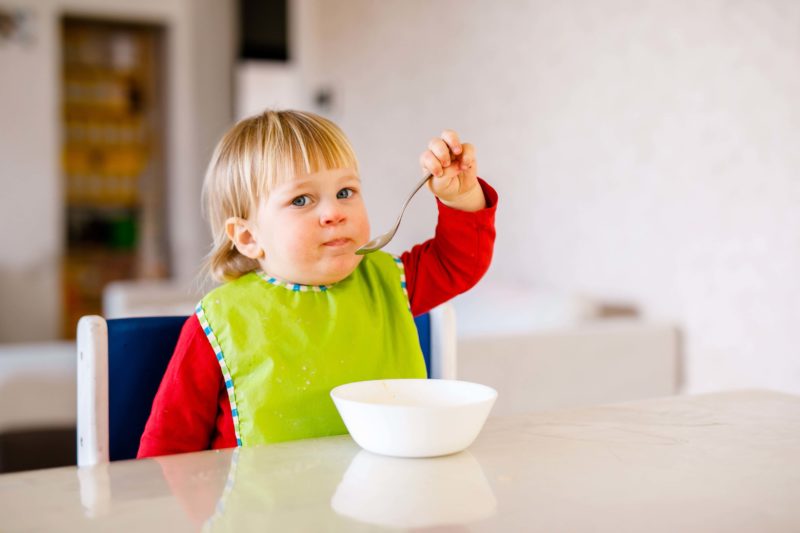Self-care skills are an important part of development as they empower children to be independent and self-sufficient. They include the daily tasks that are required to participate in life activities. Children are expected to develop self-care skills throughout early childhood and beyond. In order to help you understand the expectations for self-care skill development, we have compiled a comprehensive list of developmental milestones.
Dressing
Typical dressing development occurs between 1 year to 7 years of age. Dressing skills are an important part of school readiness. Before starting school, children should be able to do most dressing independently (apart from doing zippers, small buttons or shoelaces).
| Age | Skill Developed |
| By 12 months |
|
| 1-2 years |
|
| 2-3 years |
|
| 3-4 years |
|
| 4-5 years |
|
| 5-6 years |
|
Here are some tips to help promote your child’s dressing skills:
- Make dressing routines fun and engaging (e.g. Singing songs and playing with clothes)
- Although dressing usually happens at the start and end of the day, use opportunities throughout the day to practice dressing skills. For example, practice taking off/putting on a hat and shoes when going outside or coming back inside and practice wearing pants when going to the toilet
- Play dress-ups or dress dolls and animals during pretend play
- For complex tasks such as buttons, zips and shoelaces, practice fine motor skills such as manipulating small objects, threading beads or pasta and posting coins.
Feeding
Typical feeding development occurs between birth to 3 years and can vary depending on the rate of a child’s physical and cognitive development.
| Age | Skill Developed |
| 0-3 months |
|
| 3-6 months |
|
| 6-12 months |
|
| 1-2 years |
|
| 2-3 years |
|
Here are some tips to promote feeding skills:
- Encourage exploration of food with hands and mouth – don’t be afraid to get messy!
- Ensure your child’s head, neck and trunk is well supported and has good, seated posture during mealtimes
- Introduce a variety of food tastes as early as 3-6 months of age
- Respect your child’s cues to suggest they like or dislike the food (e.g. Head-turning, keeping mouth shut)
- Keep mealtimes fun!
- Put away other toys or screen time when eating to allow your child to be present in meal times
- Work on self-feeding skills during playtime by using spoons and cups in pretend play or in the bath
- Encourage structured family mealtimes
Toileting
Typical development of toileting skills occurs between ages 1-7 years. It is expected, that children are fully daytime toilet trained with no accidents by the time they start school.
| Age | Skill Developed |
| 1-2 years |
|
| 2-3 years |
|
| 3-4 years |
|
| 4-5 years |
|
| 5-7 years |
|
Here are some tips to help promote your child’s toileting skills:
- Routine is extremely important – set a toileting routine and use rewards or charts to motivate your child to follow the routine
- Ensure a balanced diet and plenty of water throughout the day
- Ensure a suitable toilet set up so that your child feels comfortable, relaxed and secure while using it. Use a secure stool for resting feet and ensure toilet paper is easy to reach.
- Seek medical advice from your GP if you have concerns
For more toileting tips, see our blog post https://occupationaltherapy.com.au/toilet-training-tips/
Hygiene
Hygiene relates to tasks such as showering, brushing your teeth and washing your hands. For children, these skills typically develop between 2-8 years of age.
| Age | Skill Developed |
| 2-3 years |
|
| 3-4 years |
|
| 4-5 years |
|
| 5-6 years |
|
| 6-8 years |
|
Here are some tips to help promote your child’s hygiene skills:
- Make bath times fun and engaging by using bath toys, singing songs and doing water play
- Incorporate showering and brushing teeth routines into pretend to play or role-play activities
- Use a visual schedule to indicate the steps for showering, brushing teeth or washing hands
Please remember that every child is unique and milestones can vary due to a number of different factors and hence, the above should be taken as a general guide. If you have any concerns regarding your child’s self-care skills, please feel free to contact us for advice and further information.


